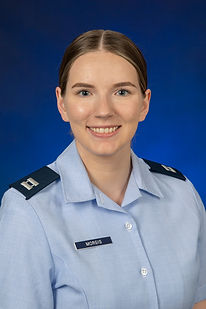Acerca de
Prospective Applicants


CPT Karina Kauffman Brown
PGY-3
CPT Anna Raymond
PGY-3

CPT Kayla Dahlquist
PGY-3

Capt Daniel Rochford
PGY-3
Recruitment Chairs

Capt Rebecca Morgis
PGY-3
Interview Rotations & Day Visits
Fourth-year USUHS and Health Professions Scholarship Programs (HPSP) students interested in elective rotations in Pediatrics at the Walter Reed National Military Medical Center at Bethesda should email: dha.ncr.Walter-Reed-Med-Ctr.list.ncc-peds@health.mil to schedule a rotation or a visit.
Students interviewing for our program should plan electives in the July-October time block. Preference is given to students who are applying for military pediatric residencies. Regardless of the elective site, students will have an opportunity to work and observe our program at the Walter Reed National Military Medical Center. We suggest that you arrange those rotations early, as spots are limited.
Requests are accepted on the first Monday of December for the upcoming academic year starting the following July. Requests are honored in the order in which they were received. Inpatient rotations typically last 4 weeks with both day and night shifts, while outpatient and elective rotations can be split into 2 week increments. We also offer single day visits or short stay visits during application season (July-October).
Requests are made by contacting the program coordinator at dha.ncr.Walter-Reed-Med-Ctr.list.ncc-peds@health.mil with the following information:
- Rank and Name
- Email and phone number
- Branch of Service (Army, Navy, Air Force, Public Health Service)
- Name of Medical School
- Your expected year of graduation
- Your planned specialty after medical school (preference for rotations from July to October is given to those applying for pediatrics)
- Whether you are applying to the NCC Pediatric Residency for internship
- Whether you will be traveling to DC on military orders or not
- Requested dates of the rotation (be sure to include the year)
- A ranked order of your rotation preferences (see below)
Available Rotations
Adolescent Medicine
Ambulatory Pediatrics
Inpatient Sub-internship
NICU Sub-internship
Newborn Nursery
Pediatric Cardiology
Developmental-Behavioral Pediatrics
Pediatric Endocrinology
Pediatric Gastroenterology
Pediatric Genetics
Pediatric Hematology/Oncology
Pediatric Infectious Diseases
Pediatric Neurology (Please ask coordinator for more information)
Pediatric Pulmonology
Typical Rotation Schedule
Orientation
On your first day, you will be greeted by a member of our residency leadership team and then taken to the GME office for in-processing. Following some general check-in items, you will meet our Chief Resident and take a brief tour before joining your rotation.
Candidate Recruitment Day
During your rotation, you will be scheduled for a Candidate Recruitment Day. Recruitment days include an overview of the program, a hospital tour, and candidate interviews.
Alternative Shadowing Opportunities
During your rotation, you will have the opportunity to shadow other rotations like the ward, NICU, and general pediatrics. Let the chief resident know if you are interested!
Social Events
There will be a variety of social events hosted by the social committee during your rotation. Check out the Plan of the Week for more details!
